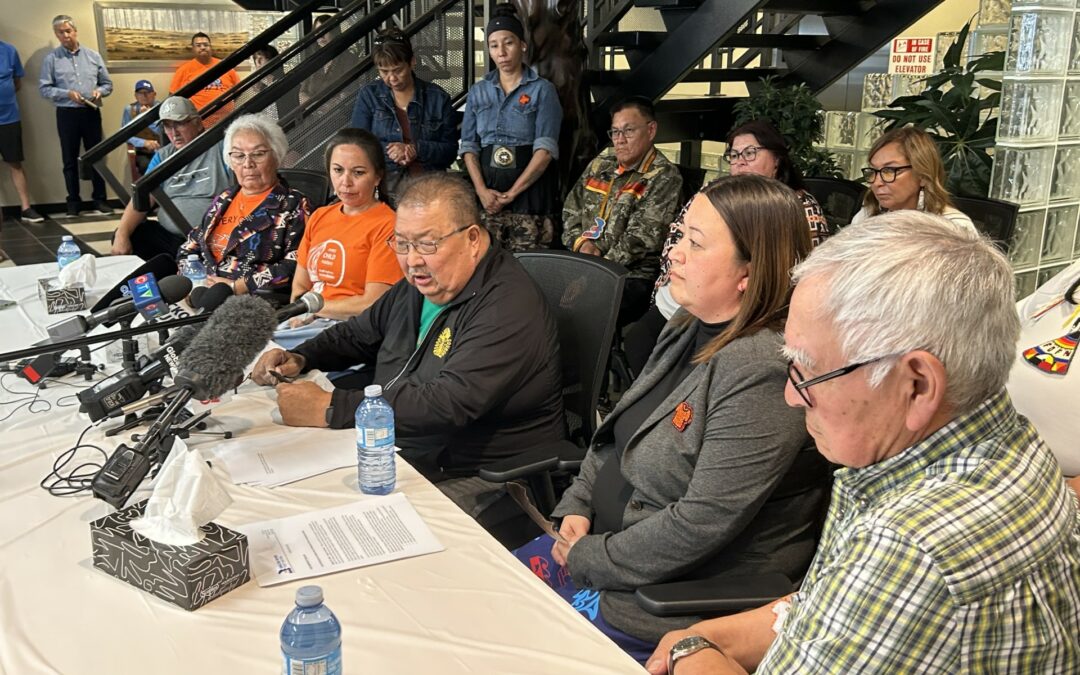Leaders from the English River First Nation along with many supporters are speaking after ground penetrating radar recently located over 90 unmarked graves near the former Beauval Residential School.
The First Nation said 79 of the graves are believed to be children while 14 are believed to be the graves of infants.
Before speaking to media in Saskatoon Tuesday, English River First Nation Chief Jenny Wolverine asked for a moment of silence to remember all of the children who did not come home from the school. The chief spoke about how English River is a diverse community with Cree and Dene people, many of whom still live off the land. Wolverine said the impacts of the residential school system are still felt in the nation today.
“I am not a residential school survivor, I do however suffer from the effects and impacts because I do not speak the Dene language fluently and that connection was lost when my grandparents and my parents attended residential school,” she said.
While the school was based in Beauval, kids from across the northwest part of Saskatchewan attended.
Chief Wolverine said when the First Nation decided to undertake a ground penetrating radar search in 2021; they started in a location they were directed to via stories and oral history.
“We did know the stories that were shared over generations about the treatment of these students and those students who never returned home,” she said.
The hope now going forward is to be able to identify the children buried in the unmarked graves, without having to exhume the graves. Among the calls made by representatives of survivors is for more records to be made available to help with the process.
Meadow Lake Tribal Council (MLTC) Vice Chief Richard Durocher said finding out who is buried at the former school is vital.
“It is the work that English River has started, that’s going to find the families of the 93 children and rightly and respectfully take them home to their communities, spiritually,” he said.
Along with pushing to have more records made available, survivors and their supporters at the media conference Tuesday as well called on both the federal and provincial governments to implement the Truth and Reconciliation (TRC) Calls to Action. They also called for more supports to be provided to help building healing facilities in impacted communities.
Federation of Sovereign Indigenous Nations (FSIN) Chief Bobby Cameron, who was present to show support on behalf of the FSIN,called for more to be done to bring to justice people accused of crimes at residential schools.
“We have non First Nation priests and nuns who are walking freely, who are rapists and murderers, walking out there,” he said.
